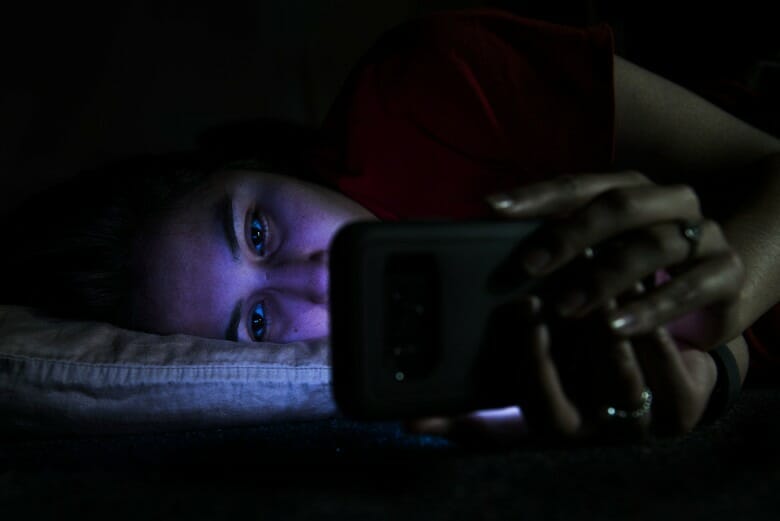Question: What Matters Just as Much as Diet and Exercise? Sleep.
Does your training plan or daily tracking include sleep?
Considering we spend nearly 1/3 of our lives sleeping, why do we tend to de-prioritize to an afterhought? It is literally ground zero when it comes to seeing the effects of both healthy eating and time in the gym. Sleep is also the perfect supplement, and sleeping a “full” 8 hours gives your body time to recover and reset your hormones to healthy levels:
- Ghrelin: the hormone that makes you hungry is increased when you don’t get an adequate amount of sleep
- Leptin: the hormone that makes you satisfied is decreased when you don’t get adequate amount of sleep
- Cortisol: your stress hormone is increased when you don’t get adequate amount of sleep
- Testosterone: is a key hormone in building muscle (anabolism) is decreased when you don’t get adequate amount of sleep
Outside of regulating hormones, sleep is also where we release a lot of them, including the one you’ve probably heard of a lot, HGH (Human Growth Hormone) — which is thought of as an ‘anti-aging’ hormone. It helps heal tissue damage as well as metabolize fat and many other things – to give you an idea.
Sleep also affects your mental game
Outside of all the biological reasons to get sleep there are psychological reasons. When you sleep well you feel rested. You’re ready to go, your ‘circadian rhythm’ is on point and you feel good. When you miss out on sleep you’re going to feel tired, you’re going to feel cranky and off. All these things will play a role in your training as it puts you at greater risk for injury or just weaker performance.
Our prescription
No matter what your goals are in health and fitness, sleep is a key ingredient in your journey. So follow this prescription. Get at least 7 to 9 hours of sleep every night. When you sleep, your body offers a perfect (and effortless) system of recovery for your body’s systems, muscles, and central nervous system to give you the maximum return on your diet and exercise.
So how can you create a sleep cycle worthy of the legit athlete you are?
How to sleep like an athlete
- Make your room like a cave: dark, quiet, and cool. Grab some white noise if you need it. Make your room only a place for sleep (and maybe storing your clothes).
- Pamper yourself with the good stuff: I’m talking sleep stuff. Invest in a good mattress, pillows, and sheets
- Maximize your wakeful hours with bright sunshine in the morning and vigorous daily exercise to reinforce circadian rhythms
- Develop a wind-DOWN routine and cut overstimulation about 20-30 minutes where you relax, ditch the blue lights of your devices, and grab a quick stretch or ROMWOD session. We also recommend journaling to help you clear your mind, process emotions causing you to lose sleep, and brainstorm. Also, maybe investigate to PMR techniques.
- Get out of bed if you can’t sleep Instead, if you can’t sleep, get up and engage in a relaxing activity—just make sure it’s not in bed.
- Stick to a schedule with specific wake and sleep times
- Cull Alcohol and Caffeine: yes I didn’t say cut, but maybe just avoid it after dinnertime. Just say no to that nightcap
- Aim for 7-9 hours: this is no joke. Athletes need it most!
- Avoid anything longer than a power nap: if sleeping at night is an issue, then napping might be disrupting your body’s natural rhythm
Let us preach a little more
Approach sleep like a ritual as important as exercise and TRAIN your body to recognize the cues of bedtimes. Like James Clear says, “The margin between good and great is narrower than it seems. What begins as a slight edge over the competition compounds with each additional contest.” Even just implementing a few of these things will move the peg on sleep quality, which could have a major effect on your training, decision-making, and performance in life.
Want to read more about Sleep? Here are 5 articles you might find worth a read:
- Effect of 1 Week of Sleep Restriction on Testosterone Levels in Young Healthy Men: http://jama.jamanetwork.com/article.aspx?articleid=1029127
- Sleep deprivation and the effect on exercise performance: http://link.springer.com/article/10.2165/00007256-198907040-00002
- Nutrition, Sleep, and Recovery: http://www.tandfonline.com/doi/abs/10.1080/17461390801954794
- Effects of sleep deprivation and exercise on glucose tolerance: http://europepmc.org/abstract/med/8338493
- Effects of sleep deprivation on performance, a Meta-Analysis: http://psycnet.apa.org/psycinfo/1997-07865-006

